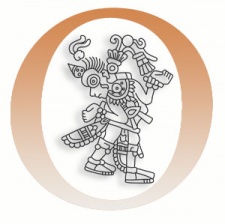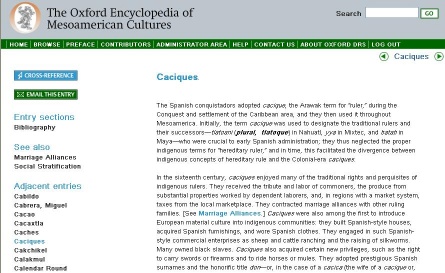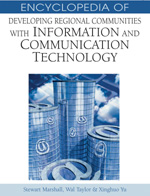Looking for the Oxford Encyclopedia of Mesoamerican Cultures ? No need to come to the library – this book is now available online.*

The Oxford Encyclopedia of Mesoamerican Cultures chronicles Pre-Hispanic, colonial, and modern Mesoamerica in over 600 articles. Encompassing the great civilizations of the pre-Columbian era (including the Olmec, Aztec, and Maya peoples) up through the colonial and postcolonial periods, the Encyclopedia covers art, archaeology, religious studies, anthropology, history, and historiography of the region.
To use the book, you can either Browse by scanning through a list of the entries in alphabetical order or Search for entries. In the left hand column, there is a list of related entries called See also, which is a list of entries related to the one you are currently looking at. Below this, you’ll see a list of Adjacent entries which can be used to browse through nearby entries (alphabetically) just as you might do with the print edition.

Another great feature of this collection is the “Cross Reference” tool. Highlight a word or phrase and then click the blue “Cross Reference” button to search across the entire encyclopedia for that word or words.
One of the lovely things about online resources is the ability to link to related works. In this ebook, the bibliography at the end of each entry provides a link to the UBC Library catalogue for each citation. Simply click the “Find’ icon to search the catalogue for the book.
There are several ways to find this ebook. You can
1) go directly to http://www.oxford-mesoamerican.com, or
2) search for the title in the library catalogue and follow the link in the catalogue record, or
3) Look for the eBook in the listing of Indexes and Databases
———-
*And if you’d prefer the print book version of the Oxford encyclopedia of Mesoamerican cultures, we have the three-volume set in the Reference section of Koerner Library (on the second floor), at call number F1218.6 .O95 2001.


 including articles, theses, books, preprints, abstracts, conference proceedings, and technical reports. In the
including articles, theses, books, preprints, abstracts, conference proceedings, and technical reports. In the 

